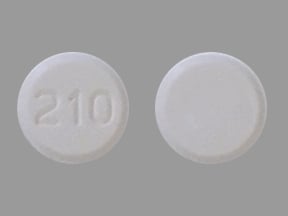
My prescription
Edit
5MG, Amlodipine (30 Tablets)
Select pharmacy

CVS
$18.72
COUPON PRICE
Albertsons
$8.85
COUPON PRICE
Walgreens
$9.34
COUPON PRICE
Walmart
$15.11
COUPON PRICEAmlodipine savings card
Show this card to your pharmacist
Albertsons
$8.85
BIN
ID
PCN
GRP
015995
LHKRC294754
GDC
DR33
Powered by
More prescriptions for hypertension
More prescriptions for hypertension
Price history for Norvasc (brand) & Amlodipine (generic)
30 Tablets, 5MG
Average retail price for Norvasc
Average retail price for Amlodipine
Average SaveHealth price for Amlodipine
Our price history data is based on aggregated prescription data collected from participating pharmacies in America. Our prescription data updates daily to reflect the latest price changes. If you notice a missing data point, it means there wasn't sufficient data available to generate a monetary value for that date.
We analyzed Amlodipine prices for (5MG, 30 Tablets) over the last 12 months. The average retail price was $52.90, while the average price using the SaveHealth discount card was $11.62. That's a savings of approximately 78.03% when using our Amlodipine coupon.
Compared to the generic version, Norvasc had an average price of $310.54 over the same time period. With the SaveHealth savings card, Amlodipine is 96.26% cheaper on average than Norvasc.
*Retail prices are based on pharmacy claims data, and may not be accurate when we don't have enough claims.
Amlodipine dosage forms
Dosage Quantity Price from Per unit 2.5MG 15 Tablets $9.17 $0.61 2.5MG 30 Tablets $9.34 $0.31 2.5MG 45 Tablets $9.51 $0.21 2.5MG 60 Tablets $9.68 $0.16 2.5MG 90 Tablets $15.95 $0.18 2.5MG 180 Tablets $16.90 $0.09 5MG 30 Tablets $9.34 $0.31 5MG 10 Tablets $9.11 $0.91 5MG 60 Tablets $9.68 $0.16 5MG 90 Tablets $16.00 $0.18
| Dosage | Quantity | Price from | Per unit |
|---|---|---|---|
| 2.5MG | 15 Tablets | $9.17 | $0.61 |
| 2.5MG | 30 Tablets | $9.34 | $0.31 |
| 2.5MG | 45 Tablets | $9.51 | $0.21 |
| 2.5MG | 60 Tablets | $9.68 | $0.16 |
| 2.5MG | 90 Tablets | $15.95 | $0.18 |
| 2.5MG | 180 Tablets | $16.90 | $0.09 |
| 5MG | 30 Tablets | $9.34 | $0.31 |
| 5MG | 10 Tablets | $9.11 | $0.91 |
| 5MG | 60 Tablets | $9.68 | $0.16 |
| 5MG | 90 Tablets | $16.00 | $0.18 |
| 5MG | 135 Tablets | $16.49 | $0.12 |
| 5MG | 180 Tablets | $16.99 | $0.09 |
| 10MG | 7 Tablets | $9.12 | $1.30 |
| 10MG | 10 Tablets | $9.17 | $0.92 |
| 10MG | 15 Tablets | $9.25 | $0.62 |
| 10MG | 30 Tablets | $9.50 | $0.32 |
| 10MG | 45 Tablets | $9.76 | $0.22 |
| 10MG | 60 Tablets | $10.01 | $0.17 |
| 10MG | 90 Tablets | $16.47 | $0.18 |
